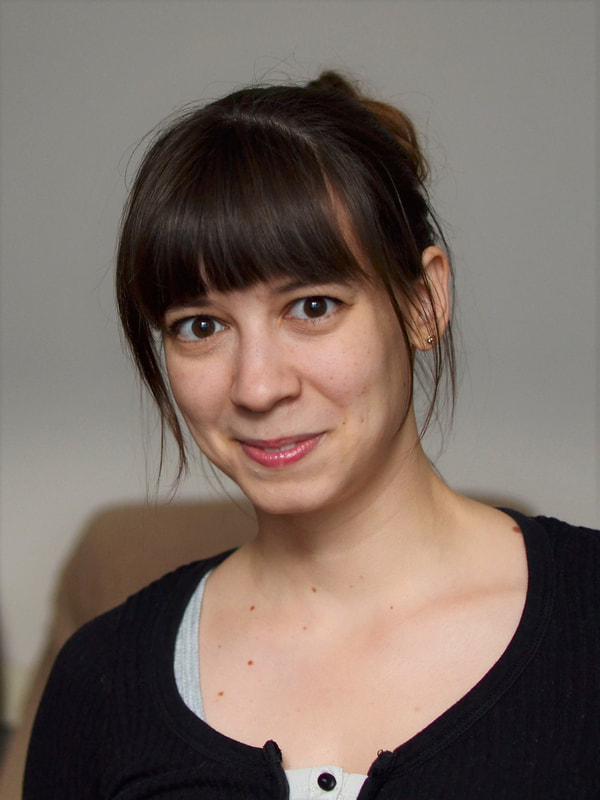|
Background |
Before joining the NBU I graduated from the University of Geneva, Switzerland with an interdisciplinary Master's degree in Neuroscience. At the Geneva University Neurocenter, I examined the effects of individual goals and motivations on the amygdala activation and its connectivity to the striatal reward regions when processing self-relevant information.
Previously I also worked at the Swiss National Centre Competence in Research SYNAPSY, where I investigated the effects of maternal violence-related PTSD on brain and HPA-axis activity in mother-child interactions. Currently, I am a visiting researcher at the Department of Experimental Psychology at the Utrecht University I originally come from Slovakia, where I completed my Bachelor's studies in Psychology at the Comenius University. |
Publications |
Kutlikova, H.H., Geniole, S.N., Eisenegger, C., Lamm, C., Jocham, G., Studer, B. (2021). Not giving up: Testosterone promotes persistence against a stronger opponent. Psychoneuroendocrinology 128, 105214. https://doi.org/10.1016/j.psyneuen.2021.105214
Knight, E. L., McShane, B. B., Kutlikova, H. H., Morales, P. J., Christian, C. B., Harbaugh, W. T., Mayr, U., Ortiz, T. L., Gilbert, K., Ma-Kellams, C., Riečanský, I., Watson, N. V., Eisenegger, C., Lamm, C., Mehta, P. H., & Carré, J. M. (2020). Weak and variable effects of exogenous testosterone on cognitive reflection test performance in three experiments. (2017): Psychological Science. https://doi.org/10.1177/0956797619885607 Kutlikova, H. H., Durdiaková, J. B., Wagner, B., Vlček, M., Eisenegger, C., Lamm, C., & Riečanský, I. (2020). The effects of testosterone on the physiological response to social and somatic stressors. Psychoneuroendocrinology, 117, 104693. https://doi.org/10.1016/j.psyneuen.2020.104693 Lauring, J. O., Ishizu, T., Kutlikova, H. H., Dörflinger, F., Haugbøl, S., Leder, H., Kupers, R., & Pelowski, M. (2019). Why would Parkinson’s disease lead to sudden changes in creativity, motivation, or style with visual art?: A review of case evidence and new neurobiological, contextual, and genetic hypotheses. Neuroscience & Biobehavioral Reviews, 100, 129–165. https://doi.org/10.1016/j.neubiorev.2018.12.016 Moser, D.A., Aue, T., Suardi, F., Kutlikova, H ., Cordedo, M.I., Rossignol, A.S., Favez, N., Rusconi Serpa, S., & Schechter, D.S. (2014) Violence-related PTSD and neural activation when seeing emotionally charged male-female interactions. Social Cognitive and Affective Neuroscience, 10, 5, 645–653. doi: 10.1093/scan/nsu099 Conference contributions: Kutlikova, H. H., et al. The effects of testosterone on control perception and persistence. Hengstberger Symposium on Neurobiological Reward Systems and their Role in Mental Health. Heidelberg, Germany, May 6-8, 2019. Kutlikova, H.H., et al. The effect of testosterone on physiological stress response. International Society of Psychoneuroendocrinology, Irvine, CA, USA, September 6-8, 2018. Kutlikova, H.H., et al. The Effect of Testosterone on Public and Private Prosociality. World Meeting of the International Society for Research on Aggression. Paris, France, July 10 - 14, 2018. Kutlikova, H. H., et al. Testosterone and biological stress jointly impair analytic cognitive processing. Symposium on Biology of Decision Making. Bordeaux. France, May 14-16, 2018. Kutlikova, H. H., et al. The Effects of Testosterone on the Psychological, Physiological, and Behavioral Stress Response. International Convention of Psychological Science. Vienna, Austria, March 23 – 25, 2017. Kutlikova, H., et al. The amygdala and dorsal striatum detect individual concern-relevance. Decision Neuroscience in Humans. Delmenhorst, Germany, June 6 – 8, 2016. |
Awards and fellowships
2022 Marietta Blau Grant for research stay abroad (18 480€)
2020 – 2021 Action Austria – Slovakia: Science and Education Cooperation (6 300 €)
2015 – 2018 Uni:docs Fellowship for doctoral candidates, University of Vienna (99 000€) 2012 – 2013 Student Fellowship for excellent results by University of Geneva
2011 Smart Head Scholarship SPP Foundation
2011 Chance for Talents Grant Orange Foundation
2010 Dean´s award for excellent scientific contribution, Comenius University
2020 – 2021 Action Austria – Slovakia: Science and Education Cooperation (6 300 €)
2015 – 2018 Uni:docs Fellowship for doctoral candidates, University of Vienna (99 000€) 2012 – 2013 Student Fellowship for excellent results by University of Geneva
2011 Smart Head Scholarship SPP Foundation
2011 Chance for Talents Grant Orange Foundation
2010 Dean´s award for excellent scientific contribution, Comenius University

